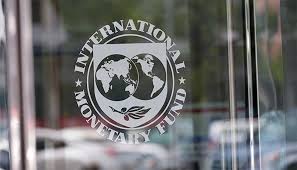The International Monetary Fund (IMF) has stated that conditionality helps countries solve balance of payments problems without resorting to measures that harm national or international prosperity.
According to the Bretton Wood Institution, when a country borrows from the IMF, the government agrees to adjust its economic policies to overcome the problems that led it to seek financial assistance.
“These policy adjustments are conditions for IMF loans and help to ensure that the country adopts strong and effective policies”, it said in a statement.
In addition, the Fund said the measures aim to safeguard IMF resources by ensuring that the country’s finances will be strong enough to repay the loan, allowing other countries to use the resources if needed in the future.
“Conditionality is included in financing and non-financing IMF programs with the aim to progress towards the agreed policy goals”, it added.
Furthermore, the Fund said member countries including Ghana that borrow from the IMF have primary responsibility for selecting, designing, and implementing policies to make their economic programme successful.
The programme is described in a letter of intent, which typically includes a memorandum of economic and financial policies for more detailed description of the policies.
Again, its objectives and policies depend on a country’s circumstances.
It explained that the overarching goal is always to restore or maintain balance of payments viability and macroeconomic stability while setting the stage for sustained, high-quality growth. For low-income countries, there is an additional objective of reducing poverty.
How does the IMF assess conditionality?
Indicative targets
The indicative targets, which are flexible numerical trackers, may be set for quantitative indicators to help monitor progress in meeting a program’s objectives.
Heightened uncertainty and limited capacity may also justify greater use of indicative targets under certain circumstances.
It added that as uncertainty is reduced, these targets may become QPCs, with appropriate modifications.
They include ceiling on the general government wage bill, ceiling on domestic arrears and ceiling on government borrowing from the central bank.
Prior actions
These are steps a country agrees to take before the IMF approves financing or completes a review. They ensure that a program will have the necessary foundation for success.
They are fiscal revenue measures, clearance of external arrears, governance reform and banking sector restructuring plan.
Quantitative performance criteria (QPCs)
These are specific, measurable conditions for IMF lending that always relate to macroeconomic variables under the control of country authorities.
Such variables include monetary and credit aggregates, international reserves, fiscal balances, and external borrowing.
Examples are ceiling on new public guarantees, ceiling on external debt and ceiling on public sector external arrears.
Structural benchmarks
These are reform measures that often cannot be quantified but are critical for achieving programme goals and used as markers to assess program implementation.
They are strengthening tax administration, improve fiscal transparency, improve anti-corruption and rule of law and reform State-Owned Enterprises (SOEs) and their governance.
The IMF Executive Board periodically conducts programme reviews to assess whether the programme is on track or needs to be adjusted in light of new developments.
If a country misses a QPC condition, the IMF Executive Board may approve a waiver if it is satisfied that the programme will still succeed. This may be because the deviation was minor or temporary or because national authorities are taking corrective actions.
Missed structural benchmarks and indicative targets do not require waivers but are assessed in the context of overall program performance.
Latest Stories
-
Government sets final deadline for NGIC 5G rollout amid delays
6 minutes -
WAFCON 2024: Four Black Queens players to watch at continental showpiece
32 minutes -
Kuami Eugene names favourite Ghanaian actors, bemoans absence of Ghanaian films on streaming platforms
33 minutes -
Asante Kotoko pay tribute to deceased Liverpool star Diogo Jota
35 minutes -
NPP rejects Ablekuma North re-run; vows to challenge case in court
46 minutes -
Once upon a time in Ghana
48 minutes -
TEWU declares strike over union representation in public universities
1 hour -
Ghana to host 2025 Global Entrepreneurship Festival – Samuel George
1 hour -
Ghanaian teenager Emmanuel Boansi wins Georgian Super Cup
1 hour -
Sean ‘Diddy’ Combs’ Conviction Exposes Ghana’s Fame Illusion and Power Exploitation
1 hour -
Ghanaian musicians must take discipline seriously – BigShot Band GH
1 hour -
Agradaa convicted of fraud, awaits sentencing after pregnancy test
1 hour -
Trial date set for former NSB boss Kwabena Adu-Boahene over GH¢49m cybersecurity saga
2 hours -
15% VAT on Non-Life Insurance Premium not a new tax – GRA clarifies
2 hours -
Photos from the state banquet in honour of Indian Prime Minister Narendra Modi
2 hours

